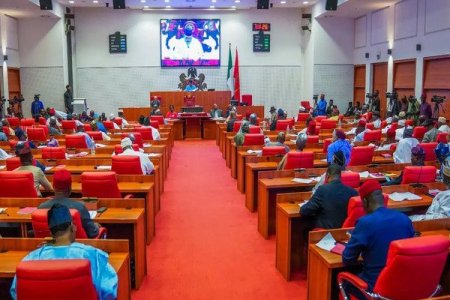
The Nigerian Senate passed four tax reform bills for the second reading, aimed at overhauling the country’s tax system. Despite opposition from some stakeholders, including Northern governors, the bills focus on improving tax coordination, resolving disputes, and reducing the tax burden on citizens to strengthen fiscal institutions.
On November 28, 2024, the Nigerian Senate successfully passed four tax reform bills for their second reading. These bills, introduced by President Bola Tinubu on October 3, 2024, are part of a broader effort to overhaul Nigeria’s tax system. Despite facing opposition from Northern governors and other stakeholders, who raised concerns about the potential regional impact of the reforms, the Presidency clarified that the bills aim to benefit the nation as a whole.
The bills include the creation of the Joint Revenue Board, the Tax Appeal Tribunal, and the Office of the Tax Ombudsman. The proposed legislation seeks to improve coordination, address revenue disputes, and streamline tax administration. The bills were first presented following the recommendations of the Tax Reforms Committee led by Taiwo Oyedele.
While the reforms are recognized as vital to reducing Nigeria’s tax burden, some senators, like Ali Ndume, expressed reservations. Ndume questioned the timing of the reforms, suggesting they could be reintroduced after consulting with governors, traditional leaders, and the National Economic Council (NEC). However, the Chief Whip argued that advancing the bills to the public hearing stage is necessary for detailed examination.
The reforms include the Nigeria Tax Bill 2024, the Tax Administration Bill, the Nigeria Revenue Service Establishment Bill, and the Joint Revenue Board Bill, which aims to establish a tax tribunal and ombudsman. The government hopes these reforms will strengthen fiscal institutions and support broader national development goals.





